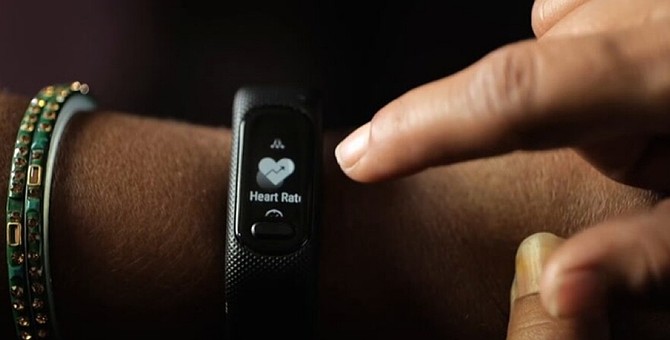There's a 'time and place' for fitness watches, experts say

via AP
Around 32% of Americans use some sort of wearable fitness device, according to Market.us data from 2024, with smart watches leading the pack in high-tech health innovation.
But are these tools a fitness ‘fix’ or fad?
Connor Cain, lead performance specialist at ETS Performance in Hayden, believes they can be a valuable tool, depending on the individual.
“I’d say there’s a time and place for fitness watches,” Cain said, adding that while he doesn’t think they’re necessary for younger children, athletes as young as middle and high school may benefit from some tracking features.
“It’s a great way to get an idea of caloric input and activity level. They’re not always the most accurate, but give a good ballpark,” he said.
The most popular fitness watches, created by brands like Apple, Garmin, and Fitbit, typically go well beyond monitoring calorie intake and movement. The newest models track heart rate, blood oxygen, and even sleep patterns.
“I think (they’re) valuable for all of that,” Cain said.
Cain’s input reflects the findings of health professionals nationwide.
“Many of my patients have found it helpful to track things like heart rate, activity levels, and even sleep patterns. Seeing progress over time can encourage better habits,” said Alexandra Kharazi, MD, a cardiothoracic surgeon at Southern California Surgical, in a July 2025 interview with Digital Trends.
A 2021 review of data from over 160,000 participants published by the National Library of Medicine found that activity trackers led to approximately 1,800 additional steps, or about 40 extra minutes, of walking daily — giving weight to the claim that these devices can promote better habits.
“They give a window into how your body responds to daily life — and that knowledge can be a powerful motivator for positive change,” Kharazi told Digital Trends.
Even so, Kharazi also believes there’s a time and place for fitness watch features.
“If you’re managing a serious health condition, you’ll still need professional monitoring,” she said.










